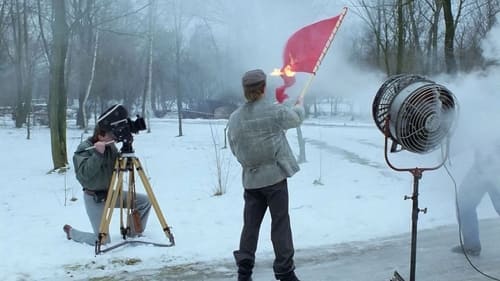Wolf Biermann
출생 : 1936-11-15, Hamburg, Germany
약력
Karl Wolf Biermann (born 15 November 1936) is a German singer-songwriter, poet, and former East German dissident. He is perhaps best known for the 1968 song "Ermutigung" and his expatriation from East Germany in 1976.
Biermann was born in Hamburg, Germany. His mother, Emma (née Dietrich), was a Communist Party activist, and his father, Dagobert Biermann, worked on the Hamburg docks. Biermann's father, a Jewish member of the German Resistance, was sentenced to six years in prison for sabotaging Nazi ships. In 1942, the Nazis decided to eliminate their Jewish political prisoners and Biermann's father was deported to Auschwitz concentration camp, where he was murdered on 22 February 1943.
Biermann was one of the few children of workers who attended the Heinrich-Hertz-Gymnasium (high school) in Hamburg. After the Second World War, he became a member of the Free German Youth (Freie Deutsche Jugend, FDJ) and in 1950, he represented the Federal Republic of Germany at the FDJ's first national meeting.
Upon finishing school at the age of 17, Biermann emigrated from West to East Germany where he believed he could live out his Communist ideals. He lived at a boarding school near Schwerin until 1955, and then began studying political economics at the Humboldt University of Berlin. From 1957 to 1959, he was an assistant director at the Berliner Ensemble. At university he changed courses to study philosophy and mathematics under Wolfgang Heise until 1963, when he completed his thesis. Despite his successful defense of his thesis, he did not receive his diploma until 2008 when he was also awarded an honorary doctorate degree.
In 1960, Biermann met composer Hanns Eisler, who adopted the young artist as a protégé. Biermann began writing poetry and songs. Eisler used his influence with the East German cultural elite to promote the songwriter's career, but his death in 1962 deprived Biermann of his mentor and protector. In 1961, Biermann formed the Berliner Arbeiter-Theater ("Berlin Workers' Theater"), which was closed in 1963 before the production of Biermann's show Berliner Brautgang, which documented the building of the Berlin wall. The play was officially banned and Biermann was forbidden to perform for six months.
Although a committed communist, Biermann's nonconformist views soon alarmed the East German establishment. In 1963, he was refused membership in the ruling Socialist Unity Party of Germany (SED), although no reason was given at the time for his rejection. After the Wende, documents available from Biermann's file at the Stasi Records Agency revealed that the reviewers were under the impression that he was a regular user of stimulants, leading to the rejection of his application. ...
Source: Article "Wolf Biermann" from Wikipedia in english, licensed under CC-BY-SA 3.0.



